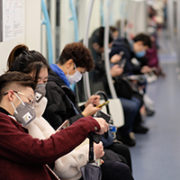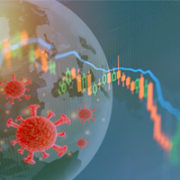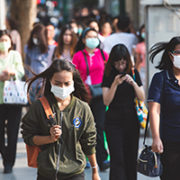Archive | Economics RSS feed for this section
Economics, Environment, Health, Social development and protection
 Economics, Environment, Finance sector development, Health
Economics, Environment, Finance sector development, Health
 Economics, Health, Social development and protection
Economics, Health, Social development and protection
 Economics, Health
Economics, Health
 Economics, Governance and public sector management, Industry and trade, Private sector development
Economics, Governance and public sector management, Industry and trade, Private sector development
 Economics, Health, Social development and protection
Economics, Health, Social development and protection
 Economics, Health, Social development and protection
Economics, Health, Social development and protection
 Economics, Health, Social development and protection
Economics, Health, Social development and protection
 Economics, Health, Social development and protection
Economics, Health, Social development and protection
 Economics, Health, Social development and protection
Economics, Health, Social development and protection

ESG investment growth amid the COVID-19 crisis

Environmental, social, and governance (ESG) investment is critical for achieving inclusive growth in Asia and can play a critical role in reducing the income inequality caused by the coronavirus disease (COVID-19).
COVID-19 highlights the need to strengthen environmental risk management and scale-up sustainable finance and investment across Asia

Like the rest of the world, Asia has been hit hard by the COVID-19 crisis. While some countries have been able to contain the spread of the virus relatively well, the disruption of supply chains, sharp decline in global demand, and the large-scale withdrawal of capital have led to severe economic contractions across the region.
Achieving fiscal sustainability in the face of demographic change

Asia is advancing toward becoming a gray society, though some countries are in the early stages and some are more advanced. The longevity revolution is being demonstrated through longer life expectancies due to medical innovation and improvements in medical care, as well as people having healthier lifestyles. Meanwhile, a continuously decreasing trend in fertility rates is being witnessed across the region. These two factors combined create the demographic transition of population aging. This demographic transition is not new, and its socioeconomic impacts have spread widely in many economies in Asia and the Pacific.
Economic impacts of the COVID-19 pandemic and oil price collapse

The recent collapse in oil prices in the global market was caused by a combination of supply and demand issues as well as uncertainty about the future, and has resulted in a crash in financial markets. But what are the reasons behind this collapse, and what impacts will it have on oil-exporting and oil-importing economies?
SMEs in global value chains: Catalysts for dynamic and inclusive economic growth

The world has been witnessing the active construction of global value chains (GVCs) by multinational corporations (MNCs) in recent decades. According to the World Bank (2020), the share of GVC trade in world trade increased rapidly from approximately 40% in 1990 to over 50% in 2007 before declining somewhat after the global financial crisis in 2007–2008. MNCs fragment production processes into various stages and locate them in various countries and places where the particular stages can be conducted most efficiently, or at least cost, in order to achieve an efficient production system.
How should ASEAN and ASEAN+3 respond to the COVID-19 crisis?

The Association of Southeast Asian Nations (ASEAN) and its bigger counterpart ASEAN+3, comprising the 10 ASEAN members and the People’s Republic of China, Japan, and the Republic of Korea (ROK), have been slow to respond to the COVID-19 pandemic. While they have been strenuously ramping up their efforts, more needs to be done, and quickly. There are many things they can do immediately, such as employing their machinery to increase consultation and cooperation to curb contagion—both medical and economic—and limit beggar-thy-neighbor policies.
The tip of the iceberg for COVID-19 cases in developing Asia?

The number of COVID-19 cases in many Asian developing countries is surprisingly low, but this may simply reflect inadequate levels of testing. The high correlation between rates of testing and per capita GDP strongly suggests that lower-income countries face a number of barriers to carrying out adequate testing. This raises the risk of rapid increases in infection rates in the future and points to the need for support for additional testing, as well as for increases in medical spending and general fiscal measures.
Global stimulus to fight the COVID-19 pandemic

The COVID-19 pandemic has quickly become a severe global crisis, with a drastic spread in less than 2 months and shifts in its epicenter. Almost 1 million people have been infected with the virus around the world, and the number of deaths has shot up rapidly and continues to grow.
Networks and technologies to assist the vulnerable during the pandemic

Developed countries can use advanced social security systems to protect households from the economic effects of the COVID-19 pandemic, but developing countries face a bigger challenge. They typically have a large informal sector and limited social security coverage, which hinder the delivery of assistance at short notice. Yet, developing Asia is better equipped to cushion the economic impact of the current crisis compared to the global financial crisis of 2008.
Improve handwashing access to combat COVID-19

Medical experts and institutions tell us that a critical but simple lifesaving action to reduce vulnerability to COVID-19 is literally in our own hands—regular handwashing with soap. Public awareness efforts underscore the need for greater behavioral compliance.


Search
Subscribe / Connect to Asia Pathways
Subjects
- Agriculture and natural resources
- Capacity development
- Climate change
- Economics
- Education
- Energy
- Environment
- Finance sector development
- Gender
- Governance and public sector management
- Health
- Industry and trade
- Information and Communications Technology
- Infrastructure
- Making Cities More Livable
- Miscellaneous
- Population
- Poverty
- Private sector development
- Regional cooperation and integration
- Sanitation
- Social development and protection
- Subjects
- Transport
- Uncategorized
- Urban development
- Video Blog
- Water
Recent Posts
- Rethinking High-Rise Living: Balancing Urban Growth and Sustainability in Asia’s Cities
- Navigating Linear Transport Infrastructure Through Conservation Landscapes
- How Are Technology Trends Shaping the Future of Insurance?
- Securing Asia’s Future Through Soil Health: Why It Matters and What Must Be Done
- Silent Struggles: Advancing Women’s Mobility with Public Transportation in Asia




Recent Comments